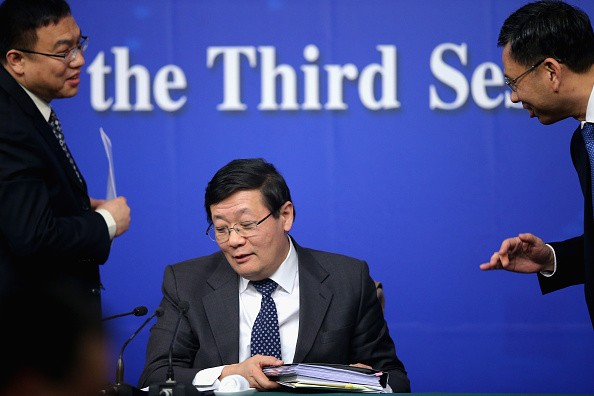The Chinese government introduced on Monday, Nov. 14, a four-grade emergency plan, as part of "fiscal re-balancing" in a bid to address the rising concern over local government debts, the Xinhua News Agency reported.
The move came as the central government said that it will keep itself away from bailouts, stressing that the plan is aimed at making local government officials accountable for the graded incidents.
According to the State Council, Grade 1 of the emergency plan is the highest classification that may involve any incident with the most serious nature and impact.
Based on the plan, city and county governments are urged to re-balance their finances if their annual interest payment on general debt is 10 percent higher than their public spending budget, or if interest on special debts is 10 percent more than its government fund budget.
China's total debt is expected to reach about 260 percent of its gross domestic product this year, according to a Goldman Sachs analyst. Before the 2008 financial crisis, the country's debt-to-GDP ratio widened to about three times that of the U.S.
During the crisis, the government tried to spur growth by offering stimulus package. At the time, public and corporate debt reached about $22 trillion while state-owned enterprises used credit to sustain their growth.
Last month, the International Monetary Fund (IMF) warned China to refrain from further incurring debt to avoid a "financial calamity."
Markus Rodlauer, deputy director of the IMF's Asia-Pacific department, said that China is moving towards the tipping point where the credit surge from the financial sector may affect its ability to manage and survive a crash.
"The level of financial and corporate debt and the complexity of the financial system and rapid growth in shadow banking is on an unsustainable path," Rodlauer was quoted as saying.
"While still manageable in its size given the size of the public assets under public control, the trend is dangerous and if it's not corrected it will lead to a correction, "the official explained. "The longer it lasts . . . the more serious the disturbance and the disruption might be. The reaction could range from a mild growth slowdown, to a sharp slowdown in growth to potentially a financial crisis."
The IMF, however, remained optimistic that the government would be able to over the challenges and lead the country towards growth and investment. He said the country could maintain its growth rate of 6 percent and 7 percent through market reforms and with the growth in the services sector.


